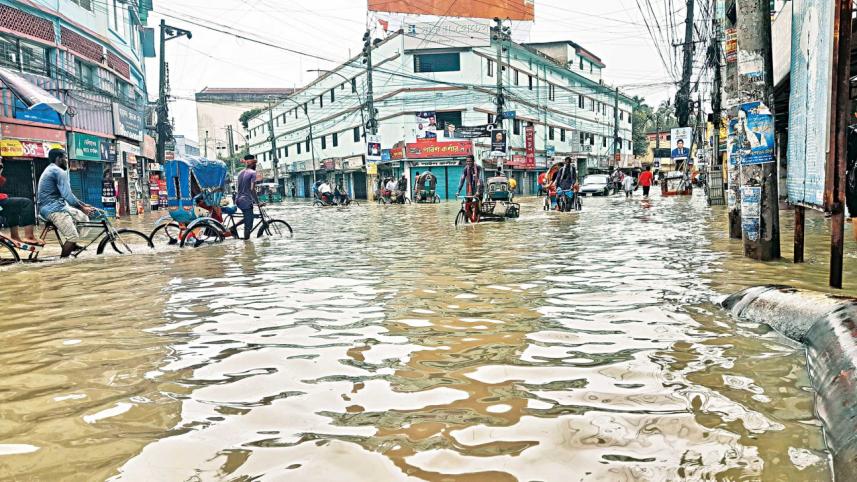Address people’s suffering in flood-hit areas

We're deeply worried about the deteriorating flood situation in the north-eastern region of Bangladesh as water from the upstream and heavy rainfall sent floodwaters surging into many villages and towns. Two districts, Sylhet and Sunamganj, have been particularly affected, with the Surma and Kushiyara rivers flowing above danger level for over a week. Reports from the region paint a grim picture: a vast number of roads, houses and croplands inundated, people either trapped in water or taking shelter in the flood centres, poor access to food and other basic necessities, schools closed or converted into shelters, and no electricity in many flood-hit areas. The suffering that all this has caused is hard to describe.
It's an emergency made worse by both natural and manmade causes. Ponds, canals and haors, which once dotted these areas and traditionally served as reservoirs holding the excess water from floods, have all but vanished in recent decades, thanks to mindless development, urbanisation and flawed government policies. Many of the rivers have also been encroached, and consequently dry up during the summer and overflow after above-average rainfall. During a visit on Wednesday, the foreign minister, a lawmaker from the Sylhet-1 constituency, spoke of plans to dredge the rivers to restore their navigability. This is not reassuring, given the experience of previous dredging initiatives that rarely delivered results.
While we hope the authorities will put their heads together to better tackle floods, which are growing in frequency and intensity because of climate change, the immediate challenge is to deliver relief and medicine and restore normal life in the flood-hit areas. We're told that in Sylhet, where about 13 upazilas including the Sadar city were hit, about 150,000 people are living in the dark after several power stations were inundated. About 675 educational institutions were reportedly closed. Meanwhile, although traders have earlier said that there were adequate supplies of food and other essentials in the market, many shops and warehouses remain under water and the supply line disrupted, which may create a food crisis soon. The situation in the remote villages is reported to be particularly dire.
We, therefore, urge the government to take urgent measures to tackle the aftermath of the flood. Expecting that the water will soon recede automatically, as the foreign minister has said, is not enough. What we need is concrete action, starting with ensuring that help reaches the most affected immediately. Relief and medical teams should be sent out to all flood-hit locations and shelters with adequate supplies, and power should be restored as soon as possible. The government should also address the bigger issues affecting the flood situation in the long run.



 For all latest news, follow The Daily Star's Google News channel.
For all latest news, follow The Daily Star's Google News channel.
Comments